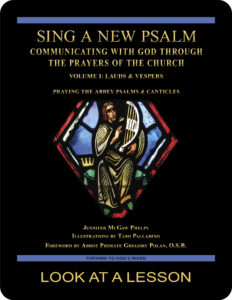righteousness
 The Book of Isaiah 58:7–10 (NABRE) encourages God’s people to care for the needs of those who have no one to care for them. In verse 8, we encounter one of the key concepts in the Scriptures in the section translated as “Your vindication shall go before you.” While vindication is an allowable translation of the concept here, it misses some of what this critically important word is suggesting.
The Book of Isaiah 58:7–10 (NABRE) encourages God’s people to care for the needs of those who have no one to care for them. In verse 8, we encounter one of the key concepts in the Scriptures in the section translated as “Your vindication shall go before you.” While vindication is an allowable translation of the concept here, it misses some of what this critically important word is suggesting.
The Hebrew word here, צֶדֶק (tsedeq), primarily means “justice” or “righteousness.” In both Greek and Hebrew, justice and righteousness are represented by the same word and as such are the same concept. Even in English, we can make a strong connection. Righteousness, from the word right, involves things being as they ought to be. The word justice comes from the Latin root ius, which also means right.
In the Book of Isaiah, God is calling for a just society in which all people receive their share and their due. This call extends to today as surely as it did for a people returned from exile. Consider whether you think we live in a just society, and if not what you can do to help it become more just.
related topics: goodness; right & left; salvation; worthy
you also may like Volume I of our Psalms study
 Sing a New Psalm: Communicating with God Through the Prayers of the Church—Volume I: Lauds & Vespers provides an in-depth look at Psalms prayed in morning and evening liturgies. (Volume II, set for publication in 2024, looks at Vigils, Day Prayer & Compline.) The study is based on The Abbey Psalms and Canticles, a translation prepared by the Benedictine monks of Conception Abbey and published by the United States Conference of Catholic Bishops (USCCB). Click on the book’s cover to view a sample lesson.
Sing a New Psalm: Communicating with God Through the Prayers of the Church—Volume I: Lauds & Vespers provides an in-depth look at Psalms prayed in morning and evening liturgies. (Volume II, set for publication in 2024, looks at Vigils, Day Prayer & Compline.) The study is based on The Abbey Psalms and Canticles, a translation prepared by the Benedictine monks of Conception Abbey and published by the United States Conference of Catholic Bishops (USCCB). Click on the book’s cover to view a sample lesson.
 Click on the picture of the statue of Moses with horns (above) to learn more about Lost in Translation. A new entry is archived each Monday. Contact us to receive Lost in Translation by email every week. You may use any of the contact links on our website to ask Matthew a question.
Click on the picture of the statue of Moses with horns (above) to learn more about Lost in Translation. A new entry is archived each Monday. Contact us to receive Lost in Translation by email every week. You may use any of the contact links on our website to ask Matthew a question.
